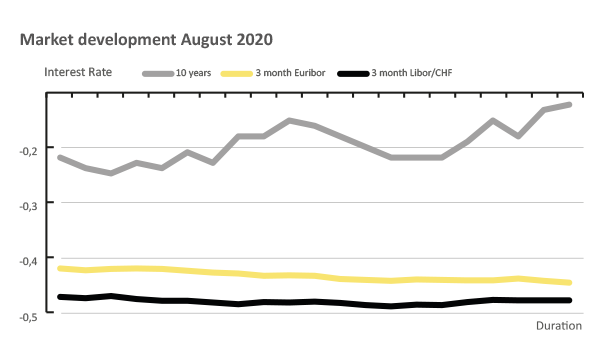Loading content …
16 September 2020
Many Transactions Called off on Short Notice
With summer ending, real estate markets are still a far cry from their pre-crisis levels. The real estate industry and its markets continue to be haunted by an extreme sense of uncertainty. We do not expect to see significant improvement over the next six months. More restrictive anti-pandemic measures by the body politic are most likely to play a key role.
The uncertainty among real estate market players because of the COVID-19 pandemic remains very high. To be sure, transaction activities have resumed. But many are also called off on short notice. This goes for sales as much as for lettings. For what it is worth, financiers have clearly regained their capacity to act, at least compared to what it was at the start of the crisis, yet capital adequacy requirements have been raised and new lendings been restricted by many financial institutions as part of their stepped-up provisions for losses.
The uncertainty regarding the way forward will linger well into the next year. It is something that all operators in the real estate industry will have to deal with. For example, many companies are currently reassessing their short-term space requirements. The thing is, it remains unclear whether the requirements will be driven up by the need to observe distancing rules or, inversely, whether the increased tendency to work from home will reduce them. With this in mind, new rentals are often shelved.
Much will depend on the developments of the next six months. Since we gained a number of new insights in the time since the start of the crisis, we would like to venture a forecast for the months ahead. In our opinion, it is highly likely that Germany, too, will re-introduce more restrictive measures to contain the infection risk. But we doubt that a lockdown like the one imposed at the onset of the crisis will repeat itself. For one thing, the present state of scientific knowledge indicates that the measures were largely unnecessary. On the other hand, there is neither enough financial latitude nor enough societal acceptance for a reintroduction of a similar level of restrictions. Accordingly, a return of comparable constraints on childcare or widespread shut-downs of the retail sector are not to be expected.
Outlook
With a predicted contraction of 5.8%, the latest economic forecast of the German government may be less pessimistic than the previous one because the economy recovered faster than had been feared. But even so, it is safe to say that 2020 will see the deepest recession since World War II. Forecasts for 2021 predict a return to upward growth at a rate of 4.4 percent, so that the pre-crisis level might be regained as early as 2022.
Some industries, however, are facing a difficult phase. Now, as then, this concerns the retail sector—with the exception of the food segment—business hotels and most notably the entire conference, trade fair, event and travel sector. These business sectors will suffer from reticence on the customer side more than from statutory regulations. The predicament will inevitably cause the real estate industry to share the consequences to the extent that it is involved through developers, owners, landlords and, not least, financiers. Refinancing commercial real estate projects therefore tends to pose a particular challenge at this time. The BF.Quartalsbarometer for Q3 2020 to be published shortly will provide more detail on this aspect.
That being said, the current situation also creates a number of opportunities for risk-prone investors. A number of high-net-worth players, for instance, already seized their chances at the start of the crisis, especially in the housing sector. Others continue to wait and see whether fall will bring an improvement of the buying conditions.
Disclaimer:
The article reflect the opinion of the authors. Nevertheless, the provider and authors assume no liability for the accuracy, completeness and timeliness of the information provided. In particular, the information is of a general nature and does not constitute legally binding advice.
Publisher

Francesco Fedele Prof Steffen Sebastian
Prof Steffen Sebastian
Holder of the Chair of Real Estate Finance
at IREBS, University Regensburg
Francesco Fedele
CEO, BF.direkt AG


